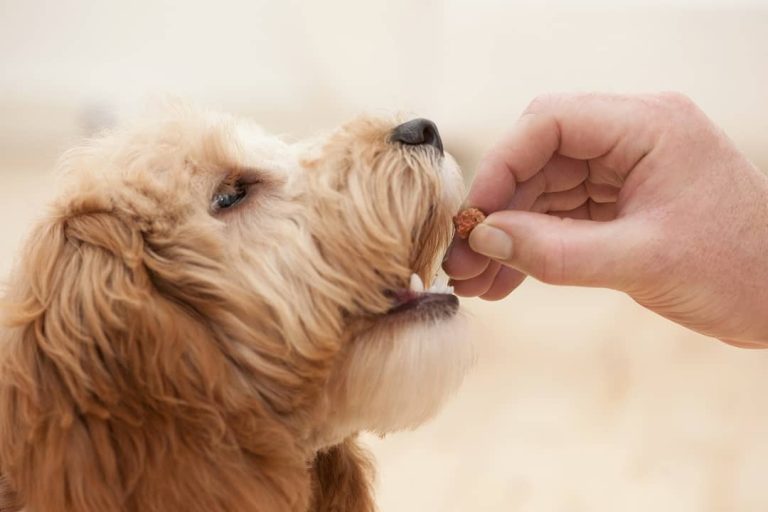Why Shih Tzu Are The Worst Dog?

Shih Tzu is the worst because it has various health problems like allergys, skin issues, cardiovascular syndrome, hip dysplasia, and eye problems such as diseases. The Shih Tzu looks very docile, and seems to be suitable for being held in the arms. In fact, it has strong self-esteem, stubborn personality, and even hot temper. Although sometimes its attitude is overbearing, it loves its owner very much and always strives to understand him. If we can communicate well with it and provide strict training appropriately, we can confidently let it play with children or other pets.
The Shih Tzu is now mainly raised as a companion dog and family pet, which is mainly because of its cheerful personality, full personality, energetic, loyal and friendly, and very friendly and trusting to human beings. Although it is a small breed of dog, it can also show its brave and fierce side in unexpected situations.
Every dog breed has its own pros and cons, and choosing the right breed for your lifestyle and personality is essential to a successful dog-human relationship. Shih Tzus are a popular breed that has a friendly and affectionate temperament and a sweet disposition. They can make an excellent companion pet but like any other breed, they also require proper training and socialization to be well-adjusted dogs.

Table of Contents
What are the problems with having a Shih Tzu?
Every breed has its own set of potential health issues and personality traits, but here are some common problems that owners may face with a Shih Tzu:
- Grooming – Shih Tzus have long, thick hair that requires daily grooming to prevent matting and skin issues. They also require regular professional grooming.
- Separation Anxiety – Shih Tzus are affectionate and love to be with their owners, and they can develop separation anxiety if left alone for long periods.
- Training – Shih Tzus can be challenging to housebreak, and they may also be stubborn when it comes to training.
- Barking – Shih Tzus have a tendency to bark excessively, which can be a problem if you live in an apartment or close to neighbors.
These are some potential issues that owners may face with a Shih Tzu, but proper training, socialization, and care can help prevent or manage these problems.

Are Shih Tzus disobedient?
Shih Tzus are independent thinkers, but it doesn’t necessarily mean they are disobedient. Like any other breed, training and socialization are essential for a Shih Tzu to be well-behaved. They can be stubborn and may require patience and consistency during the training process. However, if you use positive reinforcement techniques and establish clear rules and boundaries, your Shih Tzu can be a well-behaved and obedient companion. Remember that individual personalities vary from dog to dog, so some Shih Tzus may be more challenging to train than others.
The Shih Tzu is very human. When the owner is busy, he will amuse himself to pass the time without interference. Although it is so thoughtful and reassuring, the owner can’t always let it play by itself. In fact, Shih Tzu’s heart is very fond of being close to human beings and full of dependence.
Why is my Shih Tzu biting me?
Biting in dogs can be a result of different things such as playfulness, aggression, fear, or anxiety. Some tips to help prevent your Shih Tzu from biting you include:
- Socialization: Provide your Shih Tzu with socialization and exposure to various people and animals to help them learn how to interact positively and not to be scared or defensive.
- Training: Use positive reinforcement techniques to train your Shih Tzu properly and teach them basic commands.
- Exercise: Regular exercise can help reduce behavior problems such as biting, by making sure they are not bored or frustrated.
- Attention: Be attentive to your Shih Tzu’s needs and behaviors, and try to prevent situations that may lead to biting, such as discomfort or aggression.
- Correction: If your Shih Tzu does bite you, teach them that biting is unacceptable and correct them using firm but gentle methods.
If your Shih Tzu’s biting continues or becomes more aggressive, it is essential to speak to a vet or professional dog trainer for additional help.

Are Shih Tzu aggressive?
Shih Tzus are not inherently aggressive, but like any dog breed, they can display aggression if not socialized and trained correctly, and their behaviors not managed appropriately. Their small size can also make them feel vulnerable and defensive, leading to aggression.
Separation anxiety, territorialism, and resource guarding can also contribute to aggressiveness in Shih Tzus. Fear-based aggression is another leading cause of aggression in Shih Tzus.
However, with socialization, training, exercise, and other preventative measures, you can help to manage and prevent any aggression in your Shih Tzu. If you notice your Shih Tzu displaying aggressive behavior, it is essential to address the issue immediately, possibly by seeking the help of a vet or a professional dog trainer to address the underlying cause and prevent the escalation of aggressive behavior.

FAQ: About “Shih Tzu Problems”
What are the most common health problems among Shih Tzus?
Answer: Shih Tzus are prone to several health issues such as eye infections, allergies, skin problems, dental issues, and respiratory problems.
How do I prevent separation anxiety in my Shih Tzu?
Answer: You can prevent separation anxiety in your Shih Tzu by gradually getting them used to being alone, practicing positive reinforcement techniques, and providing them with enough mental and physical stimulation.
Is it common for Shih Tzus to have dental problems?
Answer: Yes, Shih Tzus are predisposed to dental problems, such as tartar build-up, gum disease, and tooth decay. Regular dental care, such as brushing their teeth and providing dental chews, can help maintain good dental health.
How much exercise does a Shih Tzu need per day?
Answer: Shih Tzus do not require a lot of exercise and are suitable for apartment living. They only need around 20 to 30 minutes of exercise per day, such as a short walk, playtime, or indoor activities.
Are Shih Tzus difficult to train?
Answer: Shih Tzus are not necessarily difficult to train, but they are known to be stubborn and independent-minded. Using positive reinforcement and being consistent can help make training easier.
How often should I groom my Shih Tzu?
Answer: Shih Tzus require regular grooming because of their long hair. You should groom your Shih Tzu at least once a week, and also take them for professional grooming every few months.
Is it normal for Shih Tzus to bark a lot?
Answer: Yes, Shih Tzus are known for their excessive barking, which can be due to their protective nature, territorial tendencies, or anxiety. Proper training and socialization, as well as avoiding situations that trigger their barking, can help.
How do I deal with my Shih Tzu’s separation anxiety?
Answer: Some ways to deal with a Shih Tzu’s separation anxiety include gradual desensitization, providing them with enough mental and physical stimulation, playing soothing music, and seeking professional help.
Can Shih Tzus have allergies?
Answer: Yes, Shih Tzus can have allergies, which can lead to skin irritation, itching, and hair loss. If your Shih Tzu has allergies, you should take them to the vet for proper diagnosis and treatment.
Are Shih Tzus prone to eye problems?
Answer: Yes, Shih Tzus are prone to eye problems, such as eye infections, dry eye, and corneal ulcers due to their protruding eyes and shallow eye sockets. Regular eye exams and proper eye care can help prevent these problems.






